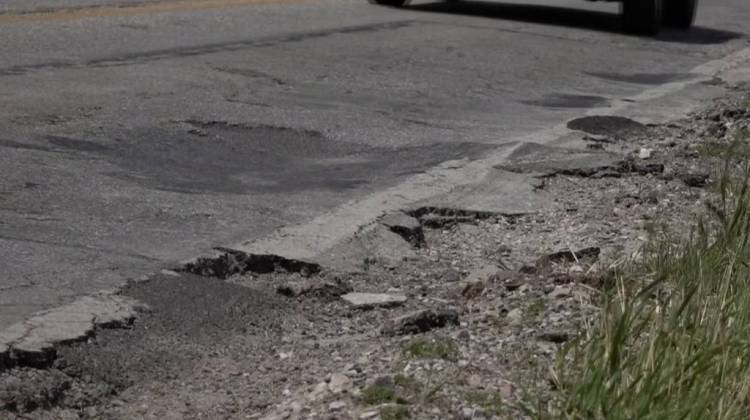
Indiana University economist Kyle Anderson says it will require more federal, state and local assistance to help the economy recover from the pandemic.
(Justin Hicks/IPB News)The most recent measure of the U.S. economy showed a historic drop due to the coronavirus. This comes even after the federal government gave aid to businesses and individuals.
The latest gross domestic product numbers, or GDP, recorded the greatest quarterly decline since it was first recorded more than 70 years ago.
Federal aid tried to boost the economy by giving $1,200 stimulus checks to individuals, forgivable loans to small businesses, and an extra $600 per week unemployment benefit.
Kyle Anderson is an economist at Indiana University Kelley School of Business. He said GDP shows how and where consumers are spending money, and while the aid did help, it wasn’t going to drastically change the GDP numbers.
“Even though there was a lot of government stimulus to help folks get by, really in the second quarter, a lot of us weren't able to get out very much and spend that money,” said Anderson.
Congress continues to debate a new federal aid package in response to the economic effects of the pandemic, while programs made to help individuals and businesses expire.
Join the conversation and sign up for the Indiana 2020 Two-Way. Text "elections" to 73224. Your comments and questions in response to our weekly text help us find the answers you need on COVID-19 and the 2020 election.
The extra $600 a week unemployment benefit stopped last week for Hoosiers. The application cut off for Paycheck Protection Program loans to small businesses ends this Saturday.
Anderson said more government assistance will be needed at the federal, state and local levels to help the economy recover.
“I think it’s a matter of where it’s targeted,” he said. “It's not necessarily the case that consumers or households need more direct payments. I think that things like local governments and schools and other entities might do better with the targeted funds and helping them to reopen. You know reopening schools in the fall is going to be a big issue. And the schools that reopen, it's gonna be expensive for them.”
Indiana officials are looking at ways to trim the state budget in response to revenue shortfalls due to the pandemic. Anderson said the state was wise to have a rainy day fund that will be needed to help it out of this recession.
Contact reporter Samantha at shorton@wfyi.org or follow her on Twitter at @SamHorton5.
 DONATE
DONATE






 Support WFYI. We can't do it without you.
Support WFYI. We can't do it without you.